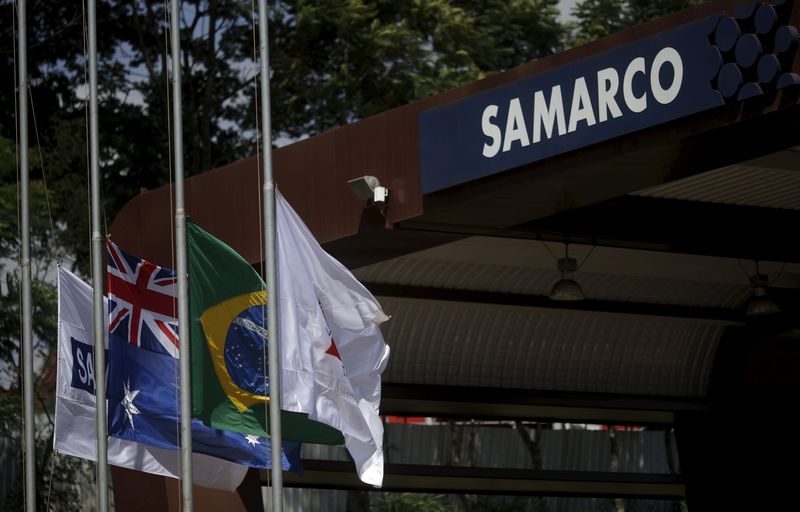(Adds government, Samarco comments, preliminary plan details, background on disaster and lawsuit)
By Anthony Boadle
BRASILIA, Jan 21 (Reuters) - Brazil's government and Samarco Mineração SA moved closer to a deal to settle a 20 billion-real ($4.8 billion) lawsuit for damages related to a deadly November dam disaster, Brazil's attorney general said on Thursday.
The two sides met in Brasilia on Thursday and talks have "advanced significantly" with the likelihood that the outline of an accord can be completed by early February, Attorney General Luis Inacio Adams told reporters after the meeting.
Brazil sued Samarco, a 50-50 joint venture between Brazil's Vale SA VALE5.SA and Australia's BHP Billiton (L:BLT) Ltd BHP.AX , for 20 billion reais ($4.8 billion) after an iron ore tailings dam burst. The resulting tsunami of mud roared through river valleys in two states, killing at least 17 and dumping mine waste as far away as the Atlantic Ocean. is considered Brazil's biggest-ever environmental disaster. Samarco has been shut down since the dam burst. of the agreement is under way and we made considerable progress today," Adams said. "We agreed on the actions that have to be carried out. There was convergence between the companies and federal and state governments on what has to be done."
If agreement is reached and financing is provided for 38 actions agreed to on Thursday to resolve the social and environment impact of the disaster, Samarco would be allowed to restart operations, Adams said. should take up to 10 years and Samarco will not have to pay all at once, Adams added, saying Vale and BHP would have to guarantee Samarco's financial commitment to the recovery plan.
The company's new chief executive officer, Roberto Carvalho, said it did not have the funds available now, but told Reuters: "If it is operating again, Samarco will easily have enough funds."
Not all who attended Thursday's meeting were as positive as Adams, whose office needs to sign off on any accord. Marilene Ramos, president of IBAMA, Brazil's environmental protection agency, said Samarco's initial proposal for dam-disaster remediation offered "much less" than she expected.
"The program that Samarco presented is a package of short-term actions focused on areas hurt by the disaster," she said. "The part where they propose new actions we consider very incomplete, and we need faster action."
The recovery plan includes setting up a privately run foundation that would be responsible to a board made up of local communities, universities and research centers, government agencies and Samarco.
($1 = 4.1564 Brazilian reais)
